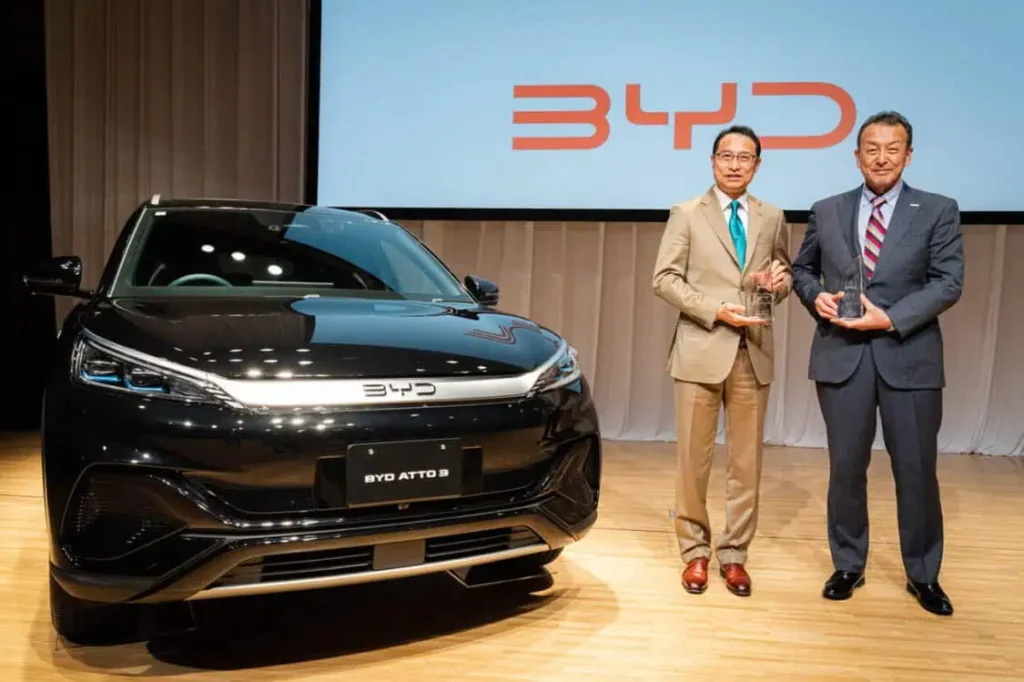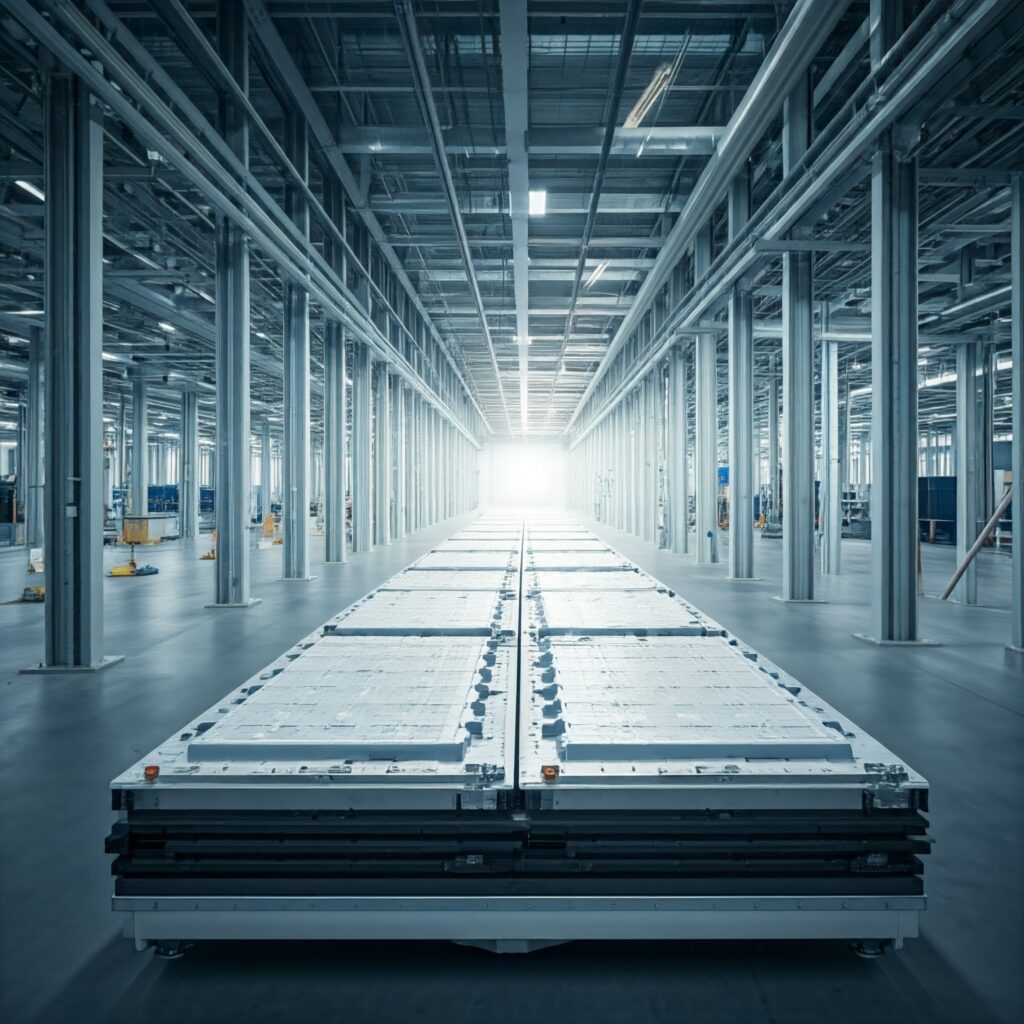BYD Confirms All-Solid-State EV Batteries To Begin Rolling Out in 2027
In a recent announcement that has captured the attention of the global automotive and tech industries, BYD, China’s electric vehicle (EV) giant, revealed its ambitious plans to launch the first EVs powered by all-solid-state batteries (ASSBs) in 2027. While BYD has already made significant breakthroughs in this new battery technology, large-scale adoption is still a few years away.
At the 2nd Annual China All-Solid-State Battery and Development Summit, Sun Huajun, the Chief Technology Officer (CTO) of BYD’s battery division (Shenzhen BYD Lithium Battery Co.), provided an updated timeline on the company’s progress with all-solid-state battery technology. According to Sun, BYD is setting its sights on 2027 for the launch of its first EVs powered by these next-generation batteries.
BYD plans to begin its first all-solid-state battery EV production in 2027, but this will be a limited rollout. During the first two years (2027–2029), the company aims to use these batteries primarily in higher-end, luxury vehicles. This phase will focus on demonstrating the viability of the technology and testing it in real-world conditions. Expect only a small number of vehicles to be produced as BYD fine-tunes the manufacturing processes and iron out any remaining challenges.
In the early stages of production, BYD will focus on incorporating solid-state batteries into its luxury vehicle brands, such as Denza and Yangwang. These models will likely serve as the proving ground for the new technology, with a higher price point justifying the investment in cutting-edge battery technology. As production scales and economies of scale come into play, solid-state batteries will eventually make their way into more affordable EVs, helping to broaden the technology’s reach.
By 2030, BYD anticipates that all-solid-state batteries will be ready for mass production. At this point, the technology will have been sufficiently tested and refined, allowing for widespread adoption across a broader range of vehicles. The company expects to ramp up production significantly, incorporating the new batteries into both luxury and more mainstream vehicle models.

Sulfide-Based Solid-State Batteries
During his address, Sun emphasized that BYD’s initial solid-state battery offerings will feature sulfide-based electrolytes. This choice of material offers several key advantages over traditional liquid electrolytes and even other solid-state battery variants:
Longer Lifespan: Sulfide-based electrolytes are known for their enhanced durability, meaning these batteries will last longer than conventional lithium-ion batteries, reducing the need for replacements.
Faster Charging: One of the most significant drawbacks of current EV technology is slow charging times. With sulfide-based solid-state batteries, BYD aims to drastically reduce charging times, which is a crucial factor in consumer adoption of EVs.
Increased Stability: Sulfide electrolytes offer greater thermal and chemical stability compared to liquid electrolytes. This translates into improved safety and reliability for both consumers and manufacturers.
BYD’s focus on sulfide-based solid-state batteries is also aligned with developments from other industry players. A recent report from LatePost (via CnEVPost) claimed that China’s Contemporary Amperex Technology Co. Ltd. (CATL)—the world’s largest EV battery maker—is also working on sulfide-based solid-state batteries. CATL plans to begin limited production in 2027, echoing BYD’s timeline for its own solid-state battery rollout.
Supply and Cost Constraints
Despite the exciting possibilities that solid-state batteries bring to the table, there are still several hurdles to overcome. For one, manufacturing challenges remain. Producing all-solid-state batteries at scale is complex and costly. Although BYD has been researching solid-state technology since 2013, achieving commercial viability will take time, especially when it comes to scaling up production.
In addition, supply chain and cost constraints will continue to influence BYD’s strategy in the coming years. While BYD has made significant strides in developing solid-state batteries, it plans to continue producing lithium iron phosphate (LFP) batteries for the next 15–20 years due to their cost-effectiveness and the need to ensure a steady supply of batteries at an affordable price point. LFP batteries are already a key part of BYD’s strategy in its EV lineup.
However, as solid-state technology matures, it’s likely that costs will come down, making mass adoption more feasible in the future. This is expected to be a gradual process, with full-scale production ramping up around 2030.

CATL and Other Players
BYD is currently the second-largest EV battery maker globally, following CATL, which holds a 37.9% share of the market according to SNE Research. BYD holds 17.2% of the market, making it a major player in the EV battery industry.
Both BYD and CATL are actively developing all-solid-state batteries, but BYD’s aggressive timeline for large-scale production sets it apart. While CATL is expected to start small-volume production in 2027, BYD’s roadmap outlines a clearer path toward mass production by 2030.
Other companies, including startups and major automotive manufacturers, are also exploring solid-state battery technology, but BYD’s years of research and established presence in the EV market give it a competitive edge.
Companies Leading the Charge in Solid-State EV Batteries
Several companies are at the forefront of developing all-solid-state batteries for electric vehicles. Many others are working on this as well. A few of the current leaders in the effort are listed below.
Toyota: Toyota is one of the leading companies in the development of all-solid-state batteries, and they’ve already demonstrated successful prototypes. Leading EV publication electrek reported that Toyota’s first solid-state batteries are due out around 2028 with over 620 miles (1,000 km) WLTP range and 10-minute fast charging.
QuantumScape: A leader in solid-state battery technology, QuantumScape has received significant investment from companies like Volkswagen and Bill Gates’ Breakthrough Energy Ventures. The company’s solid-state batteries have shown promise in terms of energy density and long-term performance.
Solid Power: Backed by major investors like BMW and Ford, Solid Power is focused on developing all-solid-state batteries for EVs. They are working to scale up their production capabilities and bring their technology to market.
BMW: BMW has been actively involved in the research and development of solid-state batteries and plans to integrate them into their vehicles within the next decade. While not using solid-state, BMW’s upcoming Neue Klasse is impressive. It will be the first BMW vehicle to feature its Gen6 technology, with 30% faster charging and 30% more range.
Samsung SDI: Samsung has announced significant progress in the development of solid-state batteries, including prototypes with higher energy densities and faster charging times compared to traditional batteries.
Honda Motor Co: EVinfo.net reported in November 2024 that Honda Motor Co. plans to double the driving range of its electric vehicles (EVs) by the late 2020s through the adoption of all-solid-state batteries, according to Keiji Otsu, president of Honda R&D.
The Future of All-Solid-State Batteries in EVs
As all-solid-state batteries continue to evolve, they have the potential to transform the electric vehicle market. With longer range, improved safety, faster charging times, and a longer lifespan, these batteries could address many of the limitations of current lithium-ion technology.
While there are still challenges to overcome in terms of manufacturing and cost, the progress made by leading companies in the space is encouraging. In the coming years, we can expect to see prototypes and limited-edition vehicles powered by solid-state batteries, with wider adoption occurring as the technology matures.
If all-solid-state batteries live up to their potential, they could be the key to unlocking the true power of electric mobility, making electric vehicles more efficient, sustainable, and accessible for everyone. This could be a big part of how mass EV adoption really hits top speed in America.

Electric Vehicle Marketing Consultant, Writer and Editor. Publisher EVinfo.net.
Services